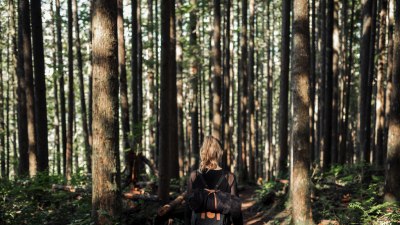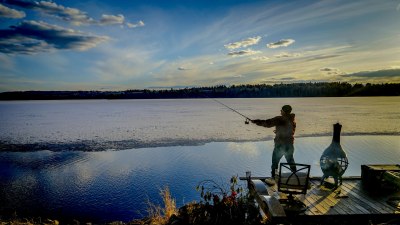The Art of Disappearing: How to Travel Off the Grid and Unplug
Discover how to travel off the grid and truly unplug for a refreshing escape from everyday life.

In a world that's constantly buzzing with connectivity, the art of disappearing—to travel off the grid—has become increasingly appealing. Off-grid travel allows individuals to unplug from technology, find solitude in nature, and rejuvenate their spirits. This guide explores the facets of off-grid travel, providing insights and practical advice to encourage a detachment from the daily grind.
Understanding Off-Grid Travel
Off-grid travel is not just a getaway; it's an intentional choice to immerse oneself in nature while avoiding the hustle of modern life. This form of travel allows individuals to rediscover the simple joys of life—fresh air, the sound of leaves rustling, and the beauty of a starlit sky. But what exactly does going off the grid entail?
Essentially, it means traveling to locations that are devoid of conventional amenities like Wi-Fi and cell service. This lack of connectivity often serves as the catalyst for self-reflection and personal growth. Travelers seeking anonymity can find refuge in backcountry cabins, secluded campsites, or remote lodges, each promising an escape from the incessant demands of technology.
Choosing the Right Destination
The first step in your off-grid journey is selecting the right destination. Consider places known for their pristine wilderness and limited access to modern amenities. National parks, remote islands, and quaint rural towns often serve as ideal spots. Research potential locations such as:
- The Appalachian Trail
- Isle Royale National Park
- Big Bend National Park
- Faroe Islands
- Alaska’s Kenai Peninsula
By choosing a destination that aligns with your desire for solitude, you can enhance your off-grid experience. Look for areas that offer outdoor activities such as hiking, fishing, and camping to fully embrace the essence of off-the-grid travel.
Planning Your Trip
Planning is crucial, especially when venturing into remote areas. Start by outlining your intentions. Do you wish to camp, hike, or stay at a sustainable lodge? These decisions will determine the gear you need and how much supplies to bring.
1. **Research Your Destination**: Understanding the terrain, weather conditions, and available amenities can help you prepare adequately.
2. **Pack Smart**: Bring sufficient food, water, and appropriate clothing. A first-aid kit is essential, along with a map and compass for navigation.
3. **Prepare for Emergencies**: Share your itinerary with someone back home. Consider carrying a satellite phone for emergencies if you're venturing far from help.
Disconnecting from Digital Devices
One of the most daunting yet rewarding aspects of off-grid travel is disconnecting from digital devices. Before departure, set boundaries to manage your digital life:
- Decide how long you want to unplug
- Communicate your plans to friends and family
- Remove social media and work-related apps
Once you arrive at your destination, put your devices in airplane mode or leave them behind entirely. Enjoy the freedom of being in the moment, focusing on your surroundings and the experiences you are creating. The state of disconnect not only alleviates stress but also promotes mindfulness and engagement with nature.
Engaging with Nature
One of the greatest benefits of off-grid travel is the opportunity to immerse oneself in the natural world. Nature has an incredible way of resetting our minds and spirits. Take advantage of this connectivity through:
- Hiking: Explore local trails and discover hidden waterfalls or scenic vistas.
- Wildlife Watching: Spend time quietly observing animals in their natural habitats.
- Stargazing: With less light pollution, night skies can offer breathtaking views of constellations and celestial events.
Consider journaling the experience. Documenting your thoughts and feelings can enhance your connection to the surroundings and serve as wonderful reminiscing material in the future.
Embracing Minimalism
Traveling off the grid encourages embracing minimalism. Without modern distractions, you are compelled to let go of excess material goods. Carry only the essentials. This shift in mindset can yield life-changing perspectives. A minimalist approach can:
- Reduce stress: Simplifying your surroundings leads to fewer decisions and less chaos.
- Encourage creativity: With fewer distractions, your mind can wander and explore new ideas.
- Create a deeper connection to your journey: Focus on experiences, not possessions.
Upon returning home, consider how you can incorporate aspects of this minimalist lifestyle into your daily routine. This could mean decluttering your living space or limiting screen time to prioritize what truly matters.
Culinary Adventures Off the Grid
Food is an integral part of any travel experience, and off-grid adventures are no exception. Embrace the art of cooking outdoors. Prepare meals using solar ovens, open flames, or portable camping stoves. The experience can be both an adventure and a joy. Here are some ideas for outdoor cooking:
- Forage for wild edibles: Learn about local flora and find herbs and berries to complement your meals.
- Catch your dinner: If you're near water, consider fishing for your next meal.
- Cook over an open fire: Roast marshmallows, grill vegetables, or make foil-wrapped meals for easy cooking.
Utilizing local ingredients and methods can enhance your culinary adventure and connect you more deeply to the surrounding environment.
Building Community Off the Grid
Despite the intention to unplug and enjoy solitude, meeting fellow travelers can enrich your experience. Campgrounds, eco-lodges, and retreats often foster environments conducive to connection. Engaging with like-minded individuals can:
- Share experiences: Exchange stories and tips on off-grid living.
- Participate in group activities: Join others in group hikes, fishing trips, or guided workshops.
- Form lasting friendships: Some connections can even transcend the travel experience, leading to future explorations.
Remember that community doesn’t always mean a large gathering. Sometimes, a quiet evening shared with one or two fellow travelers can be just as rewarding.
Preparing for Re-entry into Everyday Life
As your off-grid adventure comes to a close, it’s essential to prepare for re-entry into daily life. Transitioning back into a world rife with technology can be jarring. To ease this process:
- Take time for reflection: Before leaving your off-grid location, spend some time alone to reflect on your thoughts and experiences.
- Reestablish boundaries: Implement limits on screen time and social media usage upon returning home.
- Stay connected to nature: Try to include outdoor activities regularly in your routine.
By integrating these elements into your day-to-day life, you can carry the energy of your off-grid journey long after it has ended.
The art of disappearing and traveling off the grid is an invitation to rediscover simplicity, mindfulness, and the beauty of nature. It is not just an escape; it is a transformative experience that allows you to find a deeper connection with yourself and the world around you. With every adventure into the wild, you cultivate a sense of peace that can radiate into your everyday life. Embrace the challenge, explore the unknown, and let the journey teach you about what matters most. Your off-grid journey awaits!











